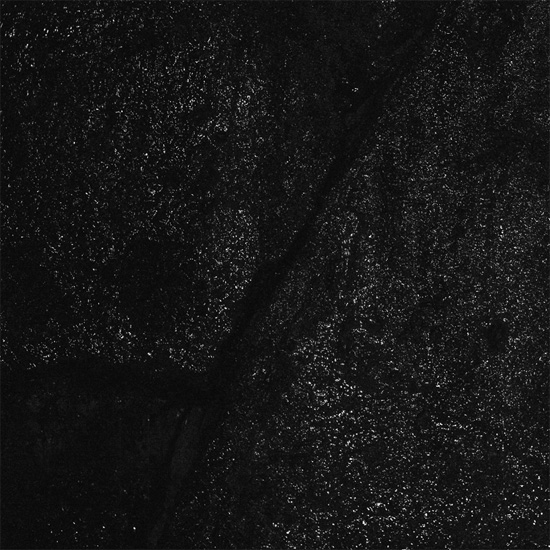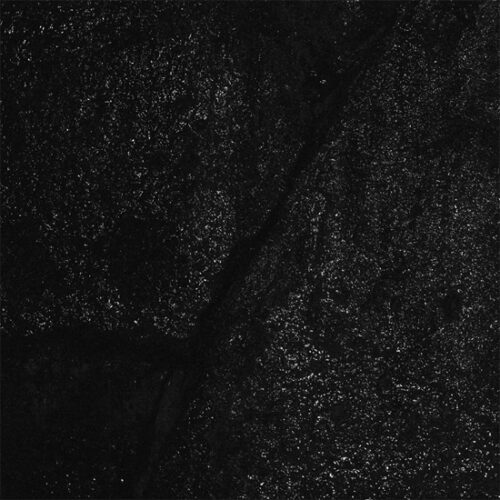In some ways Young Echo, the six-strong Bristol collective of whom Vessel is a member, are your archetypal modern electronic musicians, catholic in their tastes and unafraid to cut broadly across genre. Their six-weekly (or thereabouts) online radio broadcasts run for five hours or more, and tend to branch outward from dub and soundsystem musics into grime, techno, house, songwriting and the murkier ends of the US underground. Presented in a manner that refuses to draw any distinctions between these various strains, the impression is of a group of young musicians at ease with their influences, and comfortable drawing them into orbit around one another. That’s further reflected in the range covered by their own music. As well as bruised house tracks under the name Vessel, for example, Seb Gainsborough has put out cleaner and clubbier fare as Panther Modern and makes circuit-frazzled electronic dub/noise as part of Killing Sound and solo as REI. On the surface of things a typical internet-age producer, then, scattering sound to the aether via multiple disciplines and under multiple monikers.
But then, as with anything worth its salt, it’s not quite that simple. What makes Vessel and Young Echo’s current trajectory worthy of particular attention is that, in a world bustling with placeless hybrids birthed entirely in an airless virtual world, their work remains strongly rooted in physical locality. There’s something unmistakably Bristolian about what they do, sonically – sticky sub-bass frequencies, electronic dub, weedsmoke – and in terms of attitude: limited release runs on cassette and 12" through local labels; the way the doors to their radio sessions are left open for friends and acquaintances to drift in and out, adding chat and laughter as background ambience.
Gainsborough’s debut full length, Order Of Noise – an eleven track suite that calls at raw-to-the-bone analogue dub a la fellow Bristolian Ekoplekz, sculpted static in the vein of Emptyset, KPLR and Raster Noton, corroded disco and house – also sounds of a piece with his home city. Its defining sonic characteristics and DIY spirit have been expressed repeatedly throughout Bristol’s post-70s musical history, drawing Order Of Noise into a lineage that runs from The Pop Group’s Y through Portishead, the rolling drum & bass of Krust & Die and, more recently, exploratory dubstep LPs by Pinch and Peverelist. So dub and sound system methods lie at its heart – bass gloops and puddles like crude oil, raw samples are processed to the point that they become smudged and indistinct – but they’re utilised in a raw and punkish manner, as weapons with which to aggressively hack apart the genres Gainsborough uses as base material.
Deep house and disco motifs are forcefully stretched to the point that the cracks begin to show: ‘Lache’ passes through a number of different iterations across its length, each busier than the last; on glassy chimescape ‘Aries’, percussion is attenuated to the point where it’s merely implied, in the manner of Actress’ RIP album. Dubstep, whose Bristol-based iterations have audibly been a huge influence on all of Young Echo, is just as common. ‘Silten’, one of Order Of Noise‘s highlights, explores a similar tension between grace and sheer, lumbering force – lower in the mix it’s forever on the verge of tripping over itself, but its surface is as delicate as crystal.
Like much of this year’s most adventurous music, Order Of Noise‘s best moments suggest an exploration of these dance genres using methodologies more common to noise and post-noise musicians. ‘Scarletta’s clustered-kick groove is repeatedly beset by the gutteral grumblings of abused circuitry. The lovely ‘Court Of Lions’ is one of the handful of things here that closely resembles a club-centred track, but again its percussion falls into peculiar configurations, generating an anxious sort of momentum that audibly struggles to fully establish itself. In keeping with similar explorations by Actress, the Broken20 and PAN labels, Andy Stott, Emptyset and Madteo, the results aren’t explicitly driven by the need to work on a dancefloor (when I interviewed Gainsborough last year, he was fairly ambivalent about spending time in clubs).
But like those contemporaries, the imperative to physically engage listeners still lies at the heart of Vessel’s approach and is key to its essential appeal. Through all these channels, we’re witnessing a conscious disassembling of club genres. But as distinct from a similar process with IDM in the 90s, where human body rhythms were soon left behind in favour of increasingly alien alternatives, here it’s giving rise to new forms of equally exploratory but, crucially, still corporeally-minded electronic music. They’re yet to be named, which is almost certainly a good thing, but alongside Emptyset and Ekoplekz, Vessel and Young Echo are forming a Bristolian vanguard in this attack. Order Of Noise shows off Gainsborough’s more accessible side – a good thing – but it’s also a signpost marking a good place to start digging a little deeper, both into his own music and that surrounding him.



